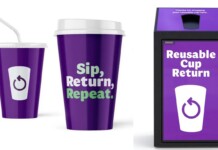What we tell ourselves directly affects how we think, feel and act. And how we think, feel and act directly impacts our health. Healing this mind-body connection is, in fact, at the forefront of what I do as a clinician in the field of addiction treatment.
In many ways, my job is not unlike that of a computer programmer working to fix a broken hard drive. Clients with addiction issues often struggle to love themselves. Many bear deep inner wounds from past hurts or traumas. Negative self-talk, shame, guilt and the inability to forgive often replay themselves as both conscious and subliminal messages.
RELATED: Quiet Time Program Brings Radical Improvement To Schools Worldwide
“Recovery affirmations” are one of the tools in my arsenal. These affirmations, which are healthy for the body and a balm for your mental health, will center around “something we want to eliminate in our lives or something we want to create in our lives.” They were written by the spiritual teacher, Louise Hay, author of the bestselling book Heal Your Body.
To what extent can such affirmations really be good for us? Research in recent years has given clues to how our thoughts affect our health. Negative self-talk is linked to chronic stress, which we now know is the chief culprit for a host of diseases, addiction included. Studies have shown how repressed anger (a common dynamic with addiction) can lead to hypertension, cardiovascular disease, digestive disorders and infection, according to a summary of that work from the University of Minnesota. And a 2014 study in Social Psychological and Personality Science found there were negative health dimensions to harboring a grudge, whereas forgiveness helped lighten one’s physical burden.
Furthermore, the work of leading positive psychologist Dr. Barbara Fredrickson and others in recent years has revealed the numerous health benefits of positivity and positive affirmations, such as better sleep; a stronger immune system (fewer colds, etc.); faster recovery from cardiovascular stress; less stress; and a longer life expectancy.
MORE: Check Out This Yoga Studio Made Entirely of Salt
Such findings reinforce just how good positive affirmations can be for you, whether or not you’re in recovery. The more your daily inner dialogue is expressing self-love, gratitude, self-confidence and forgiveness, the healthier you’ll be. Getting there takes discipline and intentionality, however. It takes standing in front of a mirror each morning and reciting the day’s positive affirmation with gusto—saying it like you mean it, in other words. At Beach House Center for Recovery (where I serve), this exercise belongs to clients’ daily routine. It’s that important.
Here are 20 affirmations that can benefit not just those in recovery but anyone on the journey to better health. They come from Louise Hay’s video, “50 Minutes of Positive Affirmations to Change Your Life”, which is found below this article:
- I approve of myself. You approve of yourself.
- I love myself. You love yourself.
- I support myself. You support yourself.
- I trust myself. You trust yourself.
- I am my best friend. You are your best friend.
- I become more lovable every day.
- My body is beautiful. Your body is beautiful.
- It is easy for me to forgive. It is easy for you to forgive.
- I forgive everyone. You forgive everyone.
- I forgive myself. You forgive yourself.
- I forgive the past. You forgive the past.
- I am free. You are free.
- I know life is for me. You know life is for you.
- I know what to do. You know what to do.
- I am capable. You are capable.
- I easily solve any problems. You easily solve any problems.
- I can handle anything that comes my way. You can handle anything
- that comes your way.
- I am full of praise and gratitude. You are full of praise and gratitude.
- I awaken each morning with joy. You awaken each morning with joy.
- I end each day with gratitude. You end each day with gratitude.
These affirmations are meant to be spoken aloud while looking in the mirror, and can be recalled throughout the day. Take the time to incorporate them into your daily routine, and they will help you build greater reserves of self-love, gratitude, self-confidence and forgiveness.
CHECK OUT: 8 Ways to Love Yoga Even If You Have No Flexibility or Balance
Candice Rasa, LCSW, is Clinical Director of Beach House Center for Recovery, a drug and alcohol addiction rehabilitation center in Juno Beach, Florida. She has more than 10 years’ experience in the mental health and substance-abuse arena, and supports healing in the clients she serves from a perspective of spirituality and alternative Eastern methods.
(WATCH the video below)
Click To Share The News With Your Friends (Photo by Quinn Dombrowski, CC)




















